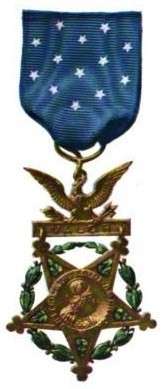William B. Turner (Medal of Honor)
| William Bradford Turner | |
|---|---|
 Medal of Honor recipient | |
| Born |
1892 Boston, Massachusetts |
| Died |
September 27, 1918 (aged 25–26) Ronssoy, France |
| Buried at | Somme American Cemetery and Memorial |
| Allegiance | United States of America |
| Service/branch | United States Army |
| Years of service | 1915 - 1918 |
| Rank | First Lieutenant |
| Unit | 105th Infantry Regiment, 27th Division |
| Battles/wars | World War I |
| Awards | Medal of Honor |
William Bradford Turner (1892 – September 27, 1918) was a United States Army officer who received the U.S. military's highest decoration, the Medal of Honor, for his actions in World War I.
Born in Boston, Massachusetts, Turner lived in Garden City, New York, and attended St. Paul's School there for one year.[1][2] He was a graduate of Williams College, class of 1914.[3] He joined the Army from Garden City in 1915.[4]
By September 27, 1918, he was serving in France as a first lieutenant with the 105th Infantry Regiment, 27th Division. During an attack on that night, near Ronssoy, he and a small group of others became separated from the rest of their company. Turner led the group forward despite intense artillery and machine gun fire, several times personally attacking machine gun positions which were firing on his men. Although wounded three times, he continued to lead the group forward, capturing and clearing three lines of trenches. After reaching their objective, a fourth line of trenches, Turner was killed while defending the position from a German counter-attack. For these actions, he was posthumously awarded the Medal of Honor the next year, in 1919.[2]
Aged 25 or 26 at his death, Turner was buried in France at the Somme American Cemetery.[5]
Medal of Honor citation
Turner's official citation reads:
He led a small group of men to the attack, under terrific artillery and machinegun fire, after they had become separated from the rest of the company in the darkness. Single-handed he rushed an enemy machinegun which had suddenly opened fire on his group and killed the crew with his pistol. He then pressed forward to another machinegun post 25 yards away and had killed 1 gunner himself by the time the remainder of his detachment arrived and put the gun out of action. With the utmost bravery he continued to lead his men over 3 lines of hostile trenches, cleaning up each one as they advanced, regardless of the fact that he had been wounded 3 times, and killed several of the enemy in hand-to-hand encounters. After his pistol ammunition was exhausted, this gallant officer seized the rifle of a dead soldier, bayoneted several members of a machinegun crew, and shot the other. Upon reaching the fourth-line trench, which was his objective, 1st Lt. Turner captured it with the 9 men remaining in his group and resisted a hostile counterattack until he was finally surrounded and killed.[2]
See also
References
 This article incorporates public domain material from websites or documents of the United States Army Center of Military History.
This article incorporates public domain material from websites or documents of the United States Army Center of Military History.
- ↑ Petrellese, Stephanie (January 29, 2010). "Resident Pushes For Veterans' Memorial Upgrade". The Garden City News. Garden City, New York. Archived from the original on January 31, 2010.
- 1 2 3 "Medal of Honor recipients - World War I". Medal of Honor citations. United States Army Center of Military History. August 3, 2009. Retrieved January 31, 2010.
- ↑ "LIEUT. N.B. TURNER KILLED IN ACTION; Former Member of Squadron A Met End in Battle Near Le Catelet. 27TH LOSES NINE OFFICERS Casualty Lists Contain Names of Several Leaders of the New York Guard Division". The New York Times. November 3, 1918.
- ↑ Service Profile
- ↑ "William B. Turner". Claim to Fame: Medal of Honor recipients. Find a Grave. Retrieved 2009-05-16.